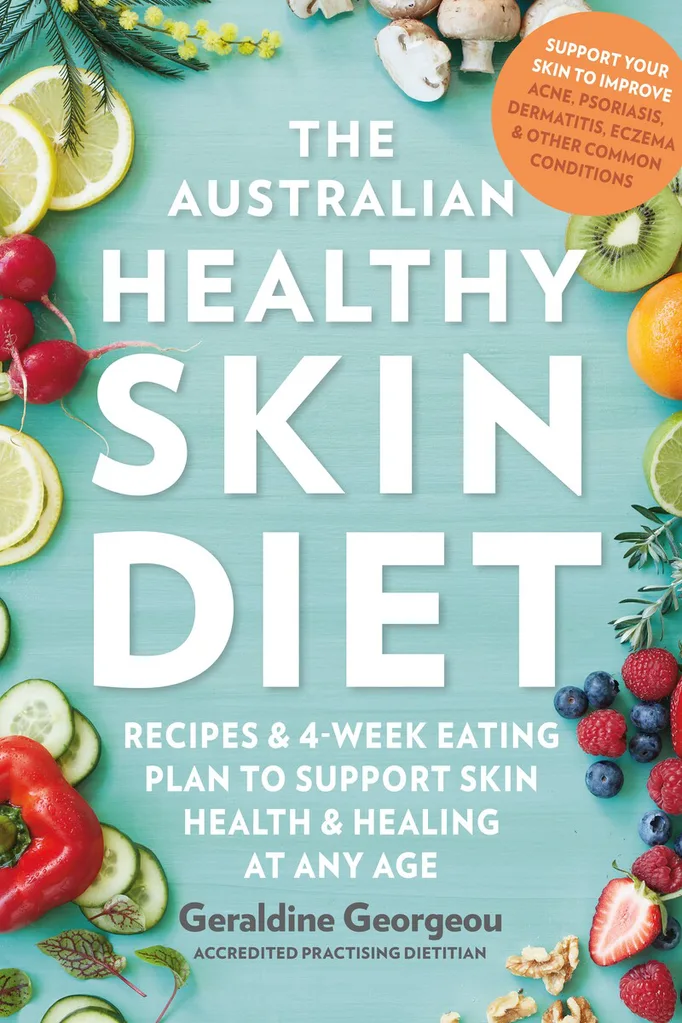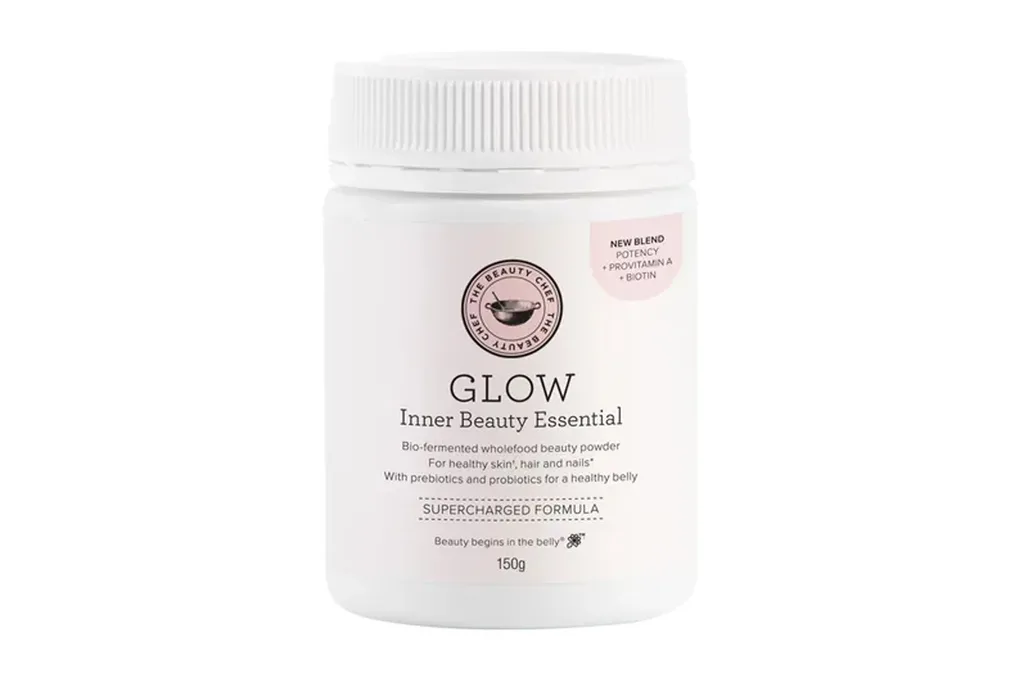The gut has spent most of human evolution being majorly misunderstood. It’s not just down there lazily sampling our last meal as we once thought. It’s considered the body’s largest sensory organ, with an incredible number of nerves, as well as trillions of bacteria collectively known as the microbiome. It is “just as large and complex as the grey matter in our heads”, says Giulia Enders in her book Gut. But up until the past 10 years or so, no-one knew why it had so much power. “Nobody would create such a neural network just to enable us to break wind,” Enders wrote. “There must be more to it than that.”
And now we know. The microbiome is responsible for everything. It breaks down food, divvies out energy and vitamins, produces mood-altering chemicals and eliminates toxins. It intercepts hormones and chats to cells, then sends messages up to the brain via the vagus nerve. How well the microbiome performs depends on how well we feed it, with an unhealthy microbiome being linked to all sorts of ailments, from the obviously gut-related (obesity and irritable bowel syndrome) to the more elusive (acne and bad moods).
Understanding what your gut microbiome is telling you can help you ditch the fad diets, the skincare serums and the mood swings for a whole-body approach to wellbeing.
THE GUT IS NOT LAS VEGAS. WHAT HAPPENS IN THE GUT DOES NOT STAY IN THE GUT – Dr Alessio Fasano
You want: A Personalised Diet
You need: A Gut Coach
The first thing to do is take a microbiome test. I did mine through the Brisbane-based biotech company Microba. Simply wipe the cotton swab onto used toilet paper, seal it up in the return envelope and pop it in the express post. You then go on with your day, feeling smug that you’ve taken the first step towards better gut health and that you’ve just sent poo in the post.
A few weeks later, you’re sent a link to an interactive report that shows in mind-boggling detail the name of every one of the critters that live in your gut and what they like to eat. While this test is beneficial for those experiencing symptoms of a gut condition, it can just as effectively be used by health-conscious people looking to optimise and personalise their nutrition.
This is the route I took, enlisting the help of a gut coach to work out a plan of action to improve my wellbeing, including a list of wholefoods tailored to my specific microbiome, allergies, exercise routine and medical history. A designer diet might sound like the next in food fads, but considering your microbiome is as unique to you as your fingerprint or dental records (seriously – your microbiome could be used in forensics CSI: Miami-style), a tailored approach to nutrition makes sense. I was happy to see my little grubs were demanding more raspberries and dark chocolate, but not so happy to see I needed to cut back on the cheese.
“Personalised nutrition is a big deal because what works for one person may not work for another,” explains my Microba gut coach, dietitian Bianca Maree Harrington. “It’s my job to consolidate the information in a user-friendly way and make recommendations about wholefoods and perhaps a plan for further investigation with other medical health professionals.”

You want: A Glowy Complexion
You need: A Skincare Dietitian
My microbiome report showed signs that my gut could be influencing my skin. I was not surprised to hear that, after all, I have the skin of a teenager. It’s not for lack of wrinkles that I get carded at the bottle shop, it’s the hormonal acne that’s followed me into my thirties
When I mention this to Geraldine Georgeou, a dietitian and author of The Australian Healthy Skin Diet, she quotes the gastroenterologist Dr Alessio Fasano: “The gut is not Las Vegas. What happens in the gut does not stay in the gut.”
“The first thing you think when you have a skin condition is, ‘What am I doing to my skin?’” she says. “But skincare isn’t just about serums: it’s also
about diet.” She describes it as a chicken-and-egg situation. “We don’t know for certain whether dysbiosis [an unbalanced microbiome] causes skin conditions, or whether skin conditions cause dysbiosis. What we do know is that where you find one, you’ll find the other.”
During my visit, Georgeou explains the acne could come from a complicated transmission of hormones that could be partly genetic and partly diet-related. She also explains that diet can help to improve skin conditions as well as skin hydration and moisture retention (read: make your skin glow).
If you’re looking for a quick fix, some probiotic supplements show promise, but without improving your meal plan it’s likely you won’t see long-term results. “Seek advice from your GP to rule out any underlying issues, and seek advice simultaneously with a dietitian,” says Georgeou. “Some simple food changes can make all the difference.”
You want: Improved Mental Health
You need: A Mood-Boosting Probiotic
Perhaps the most interesting thing I learnt on this gut-health journey is that the microbiome has about a 10 to 15 per cent influence on our mood, and as much as 95 per cent of serotonin comes from the stomach. Researchers believe that by changing the balance of your gut bacteria, you change the messages it sends to the brain, thereby changing your mood. So when I had the opportunity to test Activated Probiotics’ Biome Lift, a probiotic supplement that promised to improve my mood and my sleep, I jumped at the chance. Two days after taking it, not only was I creepy-level calm, the hum of anxiety that I’ve known for as long as I can remember was gone. It was like someone had turned o a fridge I hadn’t even realised was running.
It turns out the bacterium Bifidobacterium longum, a key ingredient in Biome Lift, has been shown to help with mild anxiety. While research into probiotics medication is in very early stages, Activated Probiotics’ founder, Blair Norfolk, tells me the outlook is promising. His company creates clinically proven, strain-specific probiotics that are designed to treat conditions such as acne, mood and diet deficiencies. “Being able not just to prevent but actually reduce some symptoms through probiotic supplements was science fi ction up until about 12 months ago,” he says. Still, probiotics aren’t magic pills, but as long as you have a healthy gut and approval from your GP, you can experiment with generic or strainspecifi c probiotics all you like.
Communication between the gut and the brain goes the other way, too, in a system known as the gut-brain axis. Dr Simon Knowles is a psychogastroenterologist and the founder of MindOver- Gut. “It’s very hard for people to tell whether someone’s symptoms are associated with a gastrointestinal condition or a psychological one,” he explains. “I suggest trying stress management techniques like mindfulness and meditation to signal to your brain that the fi ght-fl ight response is no longer needed.”
More Ways To Help Your Gut
Geraldine Georgeou’s book can help you link your physical symptoms to potential gut conditions, with gut-friendly recipes to try. Shop here.

The Beauty Chef creates wholefoods supplements that can help with general digestion, and skin or sleep quality. Shop here.

Dr Simon Knowles has a treasure trove of free e-resources for those with gut issues at mindovergut.com.

If you’re concerned about your mood, book your gut in for a session on the therapist’s couch, see your GP or call Lifeline on 13 11 14.
This article originally appeared in the marie claire Australia February 2021 issue.










